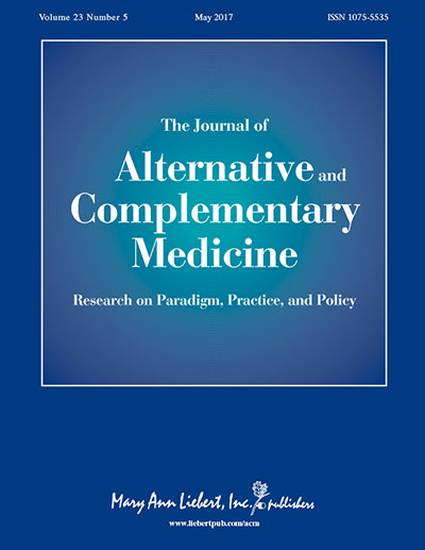
Article
Comparison of Two Types of Meditation on Patients' Psychosocial Responses During Radiation Therapy for Head and Neck Cancer
The Journal of Alternative and Complementary Medicine
(2017)
Abstract
Objectives: Radiation treatment for head and neck cancer introduces adaptive demands and subjects patients to significant and unique psychosocial challenges. There is growing evidence that meditation is useful in lessening anxiety and depression in cancer patients. This study compared the effects of two types of meditation training on the psychological responses of patients with head and neck cancer during radiation therapy.
Design: Randomized clinical trial.
Setting: Smilow Cancer Hospital at Yale New Haven.
Patients: A total of 29 patients with head and neck cancers were recruited and 28 patients were followed during their radiation therapy over 12 weeks.
Interventions: Depending on their group assignment, patients were taught one of two standardized meditations: meditation with a coach or self-meditation with a CD.
Outcome measures: Patient psychosocial responses were defined as anxiety, depression, and emotional distress and were measured by the Hospital and Anxiety Depression Scale (HADS) and the Emotional Distress Thermometer. Measures were self-reported and collected by the nurse manager at baseline and 6 and 12 weeks during the patient's scheduled weekly visit.
Results: No significant mean differences were found between the two meditation groups on all three outcomes: anxiety, depression, and emotional distress. Patients in both the meditation with a coach and self-meditation with a CD groups reported less distress from baseline and at 6 and 12 weeks, as evidenced by the HADS anxiety scale.
Conclusions: This study demonstrated two equally effective meditation techniques that can be implemented with patients experiencing high stress during radiation treatments in any health care setting to decrease patient anxiety, depression, and emotional distress. The data established self-meditation with a CD as a more cost-effective alternative to meditation with a coach, which requires intensive training and time commitment for patients.
Disciplines
Publication Date
2017
DOI
https://doi.org/10.1089/acm.2016.0214
Citation Information
Gisela Boxleitner, Shelley Jolie, Dana Shaffer, Nicholas Pasacreta, et al.. "Comparison of Two Types of Meditation on Patients' Psychosocial Responses During Radiation Therapy for Head and Neck Cancer" The Journal of Alternative and Complementary Medicine Vol. 23 Iss. 5 (2017) Available at: http://works.bepress.com/mei-bai/9/
